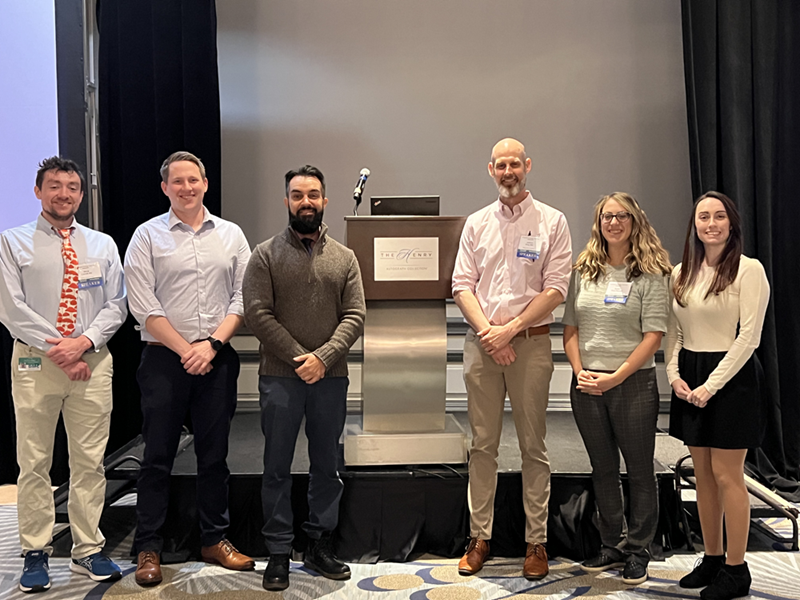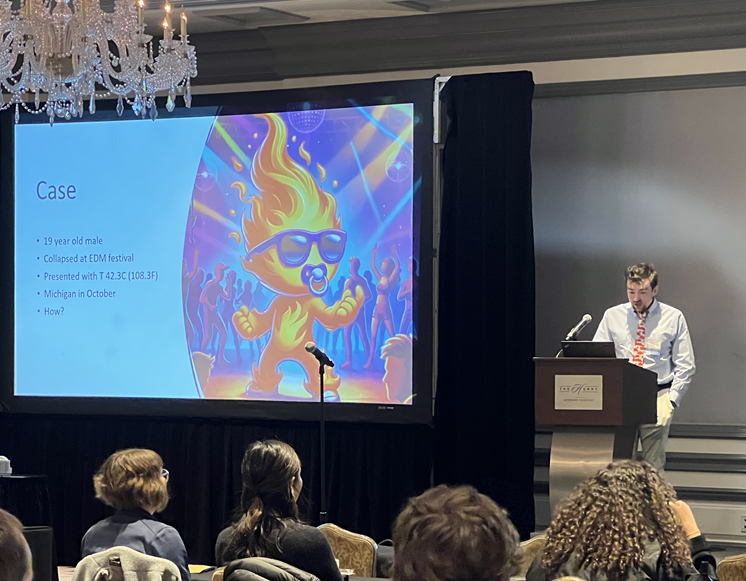The Michigan Poison & Drug Information Center at the Wayne State University School of Medicine remained the state’s hub for poison prevention education resources in 2024, providing expertise for prevention and treatment of poison-related exposures throughout the year.

Last year, the nationally accredited call center staff and clinical consulting team located in the School of Medicine’s Lande Building managed nearly 60,000 poisoning cases, with more than 31,000 involving exposure to drugs, including prescription medications, over-the-counter medications, supplements, and recreational and illicit substances. Of those, at least 26,000 cases were specifically related to prescribed or over-the-counter medications.
The call center also received more than 4,450 information requests. Most cases were managed by callers or caregivers using the expert advice provided by the center’s specialists.
“In the last year, I have spoken with many community members who have expressed their gratitude for the advice, services and peace of mind provided by the MiPDC call center staff,” said Poison Center Educator Denise Kolakowski.

The center provides expert medical advice to the public, hospitals, Emergency Medical Services and all health care providers throughout Michigan who need advice regarding poison-related emergencies. The center operates 24 hours a day, seven days a week, 365 days a year, at no cost to patients.
The center is part of the Department of Emergency Medicine at the School of Medicine. It is one of 55 accredited poison control centers across the nation and U.S. territories. All calls are answered by physicians, nurses, pharmacists, and other health care professionals with specific training in toxicology.
Its staff provides follow-up calls to health care facilities and other callers with continuing poison-related needs, participates in national and statewide surveillance of emerging public health risks and poison-related trends; participates in local, state and national emergency preparedness initiatives; and provides health care professional education. Most recently, the center’s clinical toxicology consulting team conducted its first Toxicology Acute Care Symposium on Oct. 18 at The Henry Autograph Collection in Dearborn, Mich.
The symposium’s presenters were joined by health care professionals, public health and safety professionals, and academics working in the metropolitan Detroit area and throughout Michigan for a catered and discussion-filled event.
The MiPDC Coalition for Poison Prevention remained active in 2024 as well. The coalition is an outreach extension of the center, providing a platform for community partners that impact public safety and health in the areas they serve.
“Last year, we participated in outreach events all across Michigan. Our partners in the MiPDC Coalition for Poison Prevention play a major role in making this possible,” Kolakowski said. “We are grateful for their involvement, dedication and ongoing support, and look forward to the future together.”
The coalition’s partners in 2024 included:
- The Michigan Department of Health and Human Services
- Prevention Network Michigan
- The Family Center/Healthy Grosse Pointe & Harper Woods
- The Detroit Wayne Integrated Health Network
- The Oakland Livingston Human Services Agency
- The Detroit Youth Connection
- MiPrevention
- The National Carbon Monoxide Awareness Association
- The Taylor Substance Abuse Task Force
The Michigan Poison & Drug Information Center is part of the Emergency Medicine Department at the Wayne State University School of Medicine. The MiPDC is one of 55 accredited poison control centers across the nation and U.S. territories (Puerto Rico, American Samoa, Micronesia, Guam and the U.S. Virgin Islands).
All calls to the MiPDC are answered by physicians, nurses, pharmacists and other health care professionals with specific training in toxicology.
For more information about the Michigan Poison & Drug Information Center, visit www.mipoisonhelp.org. To reach the call center, call 1-800-222-1222. In Michigan only, call 313-486-0078.
Follow the MiPDC on social media, including its new Instagram @michiganpoison and Facebook, and also on X (formerly Twitter) @michiganpoison and LinkedIn.